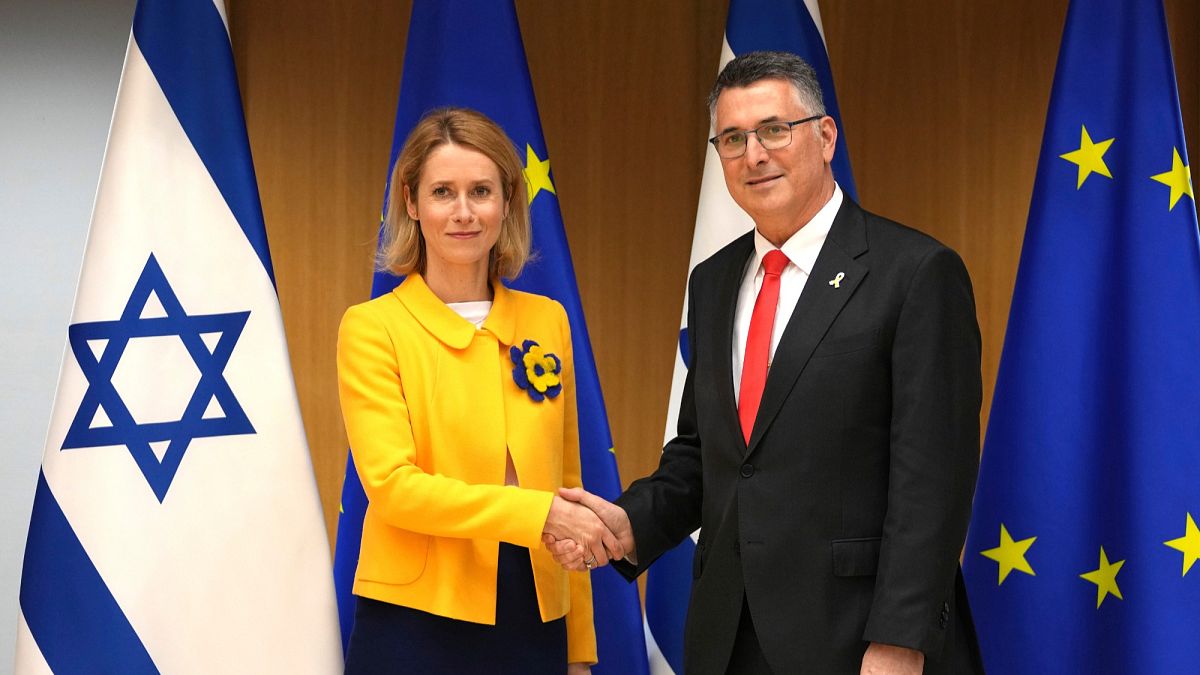

In a series of recent events, international tensions have been heightened across several regions, with drone attacks, incursions, and diplomatic decisions shaping the global landscape. From the Middle East to Eastern Europe and Africa, multiple incidents have unfolded, each contributing to a complex tapestry of current affairs. As we explore these developments, we’ll aim to shed light on the unfolding geopolitical dynamics through a calm and clear lens.
The European Union recently made a decision that reverberated through the corridors of diplomacy with the decision not to impose sanctions on Israel regarding its actions in Gaza. Instead, the EU’s foreign ministers opted to maintain a vigilant stance, observing Israel’s commitment to an agreement aimed at improving aid flow to the Gaza Strip. This decision was met with relief by Israel, while Palestinian representatives expressed shock at the outcome, highlighting the persistent divide in perspectives surrounding the conflict.
Meanwhile, the heart of Africa witnessed a tragic episode as unknown gunmen claimed the lives of at least 20 individuals in central Nigeria. The attack, which remains unclaimed, is symptomatic of the recurrent clashes between local herders and farmers over scarce resources such as land and water. These conflicts underscore the ongoing challenges faced by communities in Nigeria’s north, where land disputes often ignite violence.
In Eastern Europe, tensions simmered as Russia launched an extensive wave of drone and missile strikes targeting four Ukrainian cities overnight. This assault resulted in injuries to at least 15 people and caused significant damage to civilian infrastructure. The attacks occurred amidst a backdrop of diplomatic pressure, with a deadline set by U.S. President Trump for Russia to progress toward a peace agreement with Ukraine or face severe economic repercussions through tariffs and sanctions. This situation remains a critical focal point in the pursuit of peace in the region.
In the Middle East, a series of explosive drone strikes targeted three oil fields in Iraqi Kurdistan, causing material damage but thankfully no casualties. These attacks contribute to an ongoing series of hostilities in the region that have witnessed a heightened frequency recently. As investigations into the perpetrators continue, the global oil market watches closely due to potential disruptions in supply.
In Sudan, the paramilitary Rapid Support Forces (RSF) have been accused of carrying out devastating raids on villages in North Kordofan, resulting in nearly 300 deaths. These attacks are symptomatic of a brutal civil conflict that has engulfed Sudan since April 2023, with the RSF and the Sudanese army vying for control over critical territories. The international community has expressed deep concern over the humanitarian impact of such violence, calling for an urgent resolution to the conflict.
Concurrently, the Middle East battles further complexities as Israeli military actions extended into Syria, where it struck the Syrian defense ministry in Damascus. This marked the third consecutive day of Israeli intervention, aimed at disrupting conflicts between Syrian government forces and Druze fighters. The strikes led to the loss of life and numerous injuries, exacerbating the country’s already precarious situation.
As these events continue to unfold across different regions, the interconnectedness of global politics becomes increasingly apparent. Diplomats and leaders worldwide are tasked with navigating these intricate situations, striving for peace and stability in a world marked by diverse, yet intertwined, challenges. While the path forward may be fraught with complexities, a calm and determined pursuit of dialogue and resolution remains paramount in achieving a more peaceful global environment.
Source: {link}
